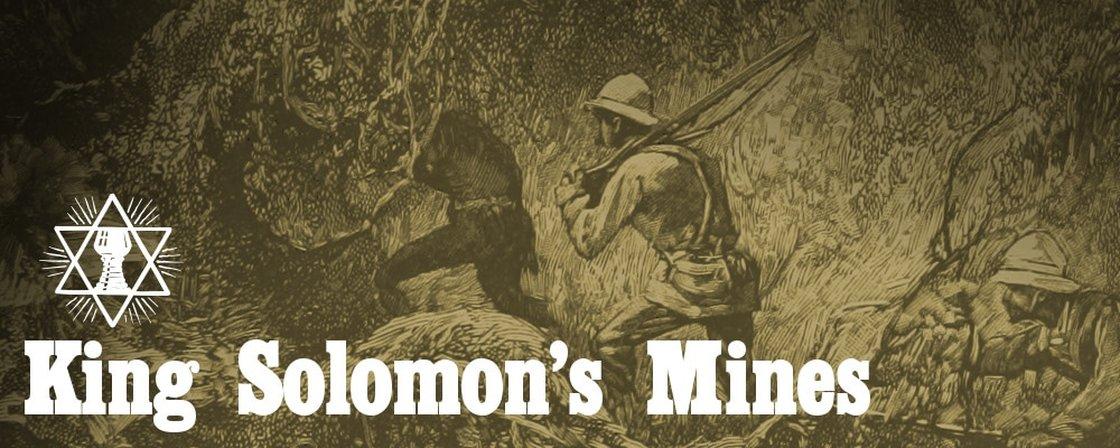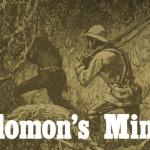Posted At: Mar 03, 2025 - 974 Views

Introduction
The concept of heroism varies across cultures, reflecting different ideals, values, and moral dilemmas. Ancient heroes like Gilgamesh, Jason, King Arthur, and King Solomon demonstrate different interpretations of leadership, bravery, wisdom, and personal sacrifice.
This discussion explores two fascinating comparisons:
🔹 Gilgamesh vs. Jason – A contrast between an existential quest for immortality and a political journey for stability.
🔹 King Arthur vs. King Solomon – A study of heroism in warfare and wisdom, representing European and Biblical traditions.
🚀 Download the Full Discussion (PDF): Click Here
1. Gilgamesh vs. Jason: Internal vs. External Heroic Journeys
📌 Key Insight: Gilgamesh seeks personal meaning through immortality, while Jason’s quest is politically motivated.
🔹 Gilgamesh’s Internal Struggle for Immortality:
✔ His journey symbolizes fear of death and existential reflection.
✔ Encounters divine figures like Saduri and Utnapishtim, who guide his understanding of mortality.
✔ Ultimately learns that immortality is only achieved through legacy, not eternal life.
🔹 Jason’s Quest for the Golden Fleece:
✔ A political mission aimed at securing his throne and eliminating treacherous threats.
✔ Aided by Aphrodite and Medea, whose loyalty and betrayals shape his fate.
✔ Unlike Gilgamesh, Jason’s downfall comes from human conflict rather than divine fate.
💡 Takeaway: Jason’s journey is about external achievements, while Gilgamesh’s struggle is philosophical and introspective.
2. King Arthur vs. King Solomon: Heroism in Battle vs. Wisdom
📌 Key Insight: King Arthur embodies the warrior-king, while King Solomon represents wisdom and moral judgment.
🔹 King Arthur: The Chivalric Hero of Britain
✔ A legendary figure in medieval folklore, known for his valor and knightly code.
✔ His leadership is marked by quests, battles, and the pursuit of honor.
✔ Excalibur symbolizes his divine right to rule, but his kingdom ultimately collapses due to betrayal.
🔹 King Solomon: The Wise Ruler of Israel
✔ Revered in the Hebrew Bible for his unmatched wisdom and wealth.
✔ Famous for the Judgment of Solomon, where he demonstrated fairness and strategic diplomacy.
✔ Unlike Arthur, Solomon’s power stemmed from wisdom and divine insight rather than warfare.
💡 Takeaway: While King Arthur represents heroism through battle and legend, King Solomon is a hero of wisdom and governance.
3. The Cultural Significance of Heroic Archetypes
✔ Norse & Mesopotamian Mythology: Heroes like Gilgamesh reflect existential fears and the search for purpose.
✔ Greek Mythology: Jason’s story highlights political ambition and the consequences of human choices.
✔ Medieval & Biblical Traditions: Arthur and Solomon showcase different leadership ideals—military strength vs. divine wisdom.
💡 Best Practice: Understanding these heroes helps us see how different cultures define morality, leadership, and the human condition.
Conclusion
The contrast between Gilgamesh and Jason illustrates the difference between personal transformation and political ambition, while the comparison of King Arthur and King Solomon highlights two distinct leadership ideals—military prowess and wisdom. These legendary heroes continue to shape our understanding of heroism, legacy, and cultural identity.
📥 Download Full Discussion (PDF): Click Here
Related Mythology & Literature Resources 📚
🔹 The Hero’s Journey: Common Archetypes in World Mythology
🔹 Warrior-Kings vs. Philosopher-Rulers: A Comparative Study
🔹 Epic Quests in Literature: From Gilgamesh to King Arthur
📌 Need expert insights on mythology and heroic archetypes? 🚀 Our professional writers at Highlander Writers can assist with comparative mythology, folklore research, and literature analysis!
Leave a comment
Your email address will not be published. Required fields are marked *










